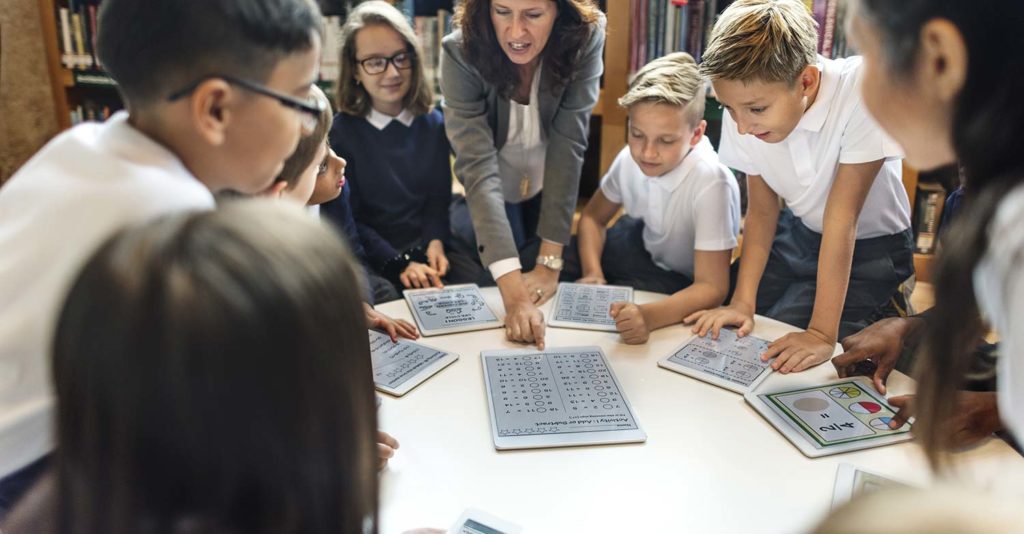Is Deputy Principal the right preparation for Principalship? by Fiona Hutton

Having left a leadership career in the Independent education sector, (including a short time as a Deputy Principal), and started an executive search business where our team interview and provide career guidance to a range of middle and senior leaders in education, I find myself considering the role of a Deputy Principal in a school, and how this could hinder the ability of the leader to move effectively into a Principal role. Perhaps as I have personally interviewed approximately 4,000 leaders over the past five years, I might be able to provide some insight into this question.
Having read the recent article “Principal succession and Recruitment” by Lynne Donnelly, Paula Jervis Tracey & Cheryl Sim (2018) there is no doubt that the role of the Principal has become increasingly complex. They state “As the leader of the school community, the Principal makes strategic decisions to secure the school’s credibility as an educational organisation. Successful student outcomes and school achievement are closely linked to the capacity of school principals to develop their school communities (Davies & Davies, 2006).” It stands to reason then, that the recruitment and selection processes for Principals has also become increasingly more complex. In 2021, due to the impact of COVID, we worked with four different College Boards to recruit four Principals, two in Adelaide, one in Victoria and one in Canberra. The process for these appointments was conducted solely on-line. The successful leaders had not lived in the state they were moving to, had not physically seen the school they were about to lead, and yet to date are all tracking very well in their current Principalships.
The role of the Deputy Principal in a school varies greatly. At its best – it is a mix of strategic and operational aspects, allowing the leader to grow and develop through a range of measurable projects whilst leading high performing teams. At its worst – a largely operational portfolio of event management, staffing, ‘bins and buses’. As schools grow in complexity and size, there is an organisational tendency to ‘flatten out the senior leadership structure’ by applying a strength-based approach to providing discreet portfolios for Deputy Principals based on their skills and expertise. Traditional Deputy Principal roles such as: Deputy Principal: Curriculum, Deputy Principal: Wellbeing, Deputy Principal: Operations, are portfolio-based roles, however, in Australian schools we are slowly seeing a shift of emphasis in the Deputy role to allow for both strategic and operational aspects and so there are some roles that try to capture both elements: Deputy Principal – Strategic Implementation, or Deputy Principal – Staff Development, One School and International Engagement! If the role of the Deputy Principal is seen to prepare the leader for Principalship, but primarily in action – it is to ‘oversee the day-to-day operations of the school’, then Principals would be well advised to examine closely their own role they play in the strategic development of aspirant Principals.
The NSW Government released the role descriptions for Principal and Deputy Principal on 4 March, 2021. They set out the requirements of both roles under the five key areas Professional Practices of the Australian Standard for Principals and these are an excellent starting point for developing the skills and knowledge required by Deputy Principals to confidently move into Principalship.
The Professional Practices of the Australian Professional Standard for Principals are:
- Leading teaching and learning
- Developing self and others
- Leading improvement, innovation and change
- Leading and managing the school
- Engaging and working with the community.
Traditionally, Deputy Principals are encouraged into programs where they shadow a Principal for a day or period of time to observe the experienced Principal in action, and this can be valuable, but perhaps of more value, is the need for Principals to ensure that their Deputies are “getting off the dance floor and onto the balcony” – through developing their strategic capabilities across a range of areas in the school as outlined by the Standards above. Of great importance, is the ability to provide smaller projects for the Deputy to lead teams with tangible, measurable outcomes. Additionally, providing an opportunity for Deputies to sit on a sub-committee of the Board, in particular in the areas of finance, HR/industrial relations, risk and compliance or legal – as these are the areas that Deputies do not have consistent access to – and yet increasingly are becoming a larger part of the Principal’s workload. I am most grateful to a past Principal of mine, for allowing me to be a regular attendee of Board meetings, where I learned quite early in my career the governance role a Board plays in providing strategic guidance to a school and was involved in a sub-committee that was researching options for the school to grow and expand in a different direction.
In summary, the role of the Deputy Principal can be a good preparation for Principalship, if the Deputy works with a Principal who has the skills and disposition to develop the Deputy strategically across a range of key areas, provides clear mentorship, feedback, and projects for growth. Deputies need to know and understand the mechanics of strategic leadership, and most importantly, the opportunity to ‘do’ if they are to move confidently into the next stage of their career. And with the number of Principals stepping out of leadership over the next five years – we will need many more Principals to invest more time now into developing the leaders of the future.
Author: Fiona Hutton,
Director – Executive Search

